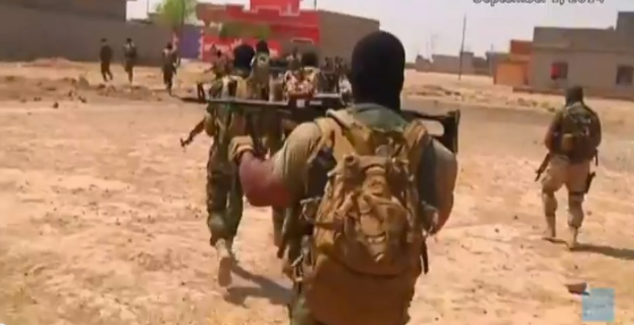The 31-page report, “After Liberation Came Destruction: Iraqi Militias and the Aftermath of Amerli,” documents, through field visits, analysis of satellite imagery, interviews with victims and witnesses, and review of photo and video evidence, that militias looted property of Sunni civilians who had fled fighting, burned their homes and businesses, and destroyed at least two entire villages. The actions violated the laws of war. Human Rights Watch also documented the abduction of 11 men during the operation, in September and October.
“Iraq can’t win the fight against ISIS’s atrocities with attacks on civilians that violate the laws of war and fly in the face of human decency,” said Joe Stork, deputy Middle East and North Africa director. “Militia abuses are wreaking havoc among some of Iraq’s most vulnerable people and exacerbating sectarian hostilities.”
On March 2, 2015, Iraqi security forces and Shia militias launched an assault on Tikrit, the capital of Salah al-Din province, to rout ISIS from the area. Tikrit was the scene of a massacre of at least 1,000 Iraqi soldiers by ISIS last June.
Following the operations to end the siege, militias, volunteer fighters, and Iraqi security forces raided Sunni villages and neighborhoods around Amerli in Salah al-Din and Kirkuk provinces. Many were villages that ISIS had passed through and in some cases used as bases. Militias appear to have planned at least some of the attacks in advance, raising questions as to whether government political and military bodies that oversee the militias are responsible for planning the attacks.
Elsewhere in Iraq and in Syria, Human Rights Watch has documented serious abuses and war crimes by al-Qaeda and later ISIS, that most likely amount to crimes against humanity.
Read More


 RSS Feed
RSS Feed